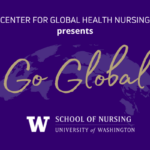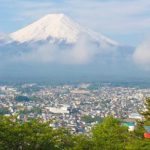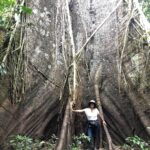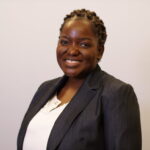December 7, 2020
Faculty Spotlight: Sarah Iribarren

Name: Sarah Iribarren
Hometown: Basin City, Washington
Degrees: BS Biology, Spanish, BSN, PhD, Certificate in Global Health
Department: Biobehavioral Nursing and Health Informatics
Research/Areas of Interest: Treatment support, infectious disease self-management (with a particular focus on tuberculosis), mobile health/telehealth, informatics
How did you get here? Why nursing?
Growing up in a rural setting with not a lot of opportunities to travel or see the world I sought out a study abroad program when I was an undergraduate. I spent a year in Ecuador in a program focused on environmental and health issues of Latin America. It was a life changing experience. It was my first time to be out of the US and I lived with a family with whom I am still in contact with today. At the end of the program I volunteered at a community clinic and local hospital in rural Ecuador for 3 months. I was struck by how versatile the nurses in the community clinic were as they lead outreach immunization campaigns, well-checks, managed wound care, and monitored births along with the primary care physicians who were from the community and had studied medicine in Cuba. It seemed to me that nursing could open doors for a broad range of ways to support health and prevent or manage diseases.
What drew you to global health work?
Working as the health coordinator at a Migrant Head Start and the experience mentioned above lead me to return to school for a nursing degree. As a nursing student I had informative experiences such as volunteering with a Shriner’s team to evaluate children in need of surgery in Mexico and observing midwives in a natural birthing clinic in Arizona. I was honored to serve veterans and thoroughly admired and loved working with the great team of colleagues in the medical ICU unit where I worked for nearly ten years. However, I knew I wanted to continue my education and had an interest in global health. Returning to school as a doctoral student I went with a long-standing community-based participatory research team to Ghana for a month and assisted local teams on various project they had outlined. Because of my continued interest in global health and research I applied for a NIH Fogarty program and was the second nurse to be selected as a Fogarty scholar. As a Fogarty scholar I worked at a research institute for a year in Argentina which is where I helped lead a qualitative study to understand barriers and facilitators to successfully completing active tuberculosis treatment within the public healthcare system in a high tuberculosis burden region. This experience really set my course for the research I continue today and the teams with whom I continue to work. Tuberculosis continues to be one of the top ten causes of death globally and is the leading cause of death due to an infectious disease despite it being largely curable.
What is one unforgettable experience you have had that impacted your career trajectory (nursing or otherwise)?
Volunteering at the community health center created by women from the community who studied medicine in Cuba and returned to establish the ‘House of Health’ as translated from Quichua was my most impactful experience. They included a dentist, a traditional midwife and traditional healer within the center to ensure they met the needs of their community by providing traditional and modern medicine and wholistic care. They were trusted and continually did outreach to more remote areas. It was very inspiring.
What projects are you working on right now?
 I am very fortunate to have the opportunity to work with a great team of students, research scientists, and faculty from Nursing, Bioengineering, Human-Centered Design and Engineering, and more recently from Materials Science and Engineering. We are working to develop tools to support individuals with active tuberculosis successfully complete their treatment and equipping teams with interactive mobile tools to monitor and provide support to their patients. We have developed and continue to refine user-centered mobile applications for patients and health teams that is accompanied by a reengineered direct drug metabolite test.
I am very fortunate to have the opportunity to work with a great team of students, research scientists, and faculty from Nursing, Bioengineering, Human-Centered Design and Engineering, and more recently from Materials Science and Engineering. We are working to develop tools to support individuals with active tuberculosis successfully complete their treatment and equipping teams with interactive mobile tools to monitor and provide support to their patients. We have developed and continue to refine user-centered mobile applications for patients and health teams that is accompanied by a reengineered direct drug metabolite test.
What excites you about being part of the faculty at the SON and specifically the CGHN?
The opportunities to work with great students and teams and establish new collaborations to work towards addressing some of todays challenges. We have a long way to go to increase opportunities for all to live a healthier life. The CGHN is critical to help build the capacity for all with interest to work towards achieving health equity and expand opportunities to contribute to local and global health.
If you could be anything else (besides faculty at the SON of course), what would it be?
Wildlife or nature photographer. I love to adventure outdoors and enjoy watching for wildlife. Recently hiking in high elevations in Colorado we saw elk, moose, deer, a bear, a pack of coyotes, marmots, and many birds within a few hours. It is humbling and feels good to regain perspective




